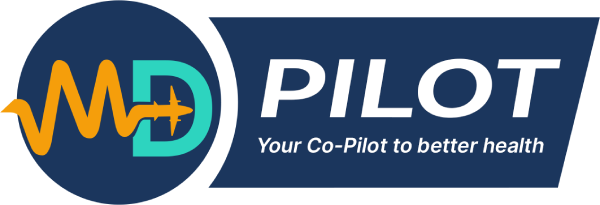Table Of Contents
- Understanding Wegovy and How It Works
-
Clinical Evidence: Fatigue Rates in Studies
- Why Does Wegovy Cause Fatigue?
- Types of Tiredness on Wegovy
- Managing Fatigue While on Wegovy
- Comparison with Other GLP-1 Medications
- Patient Experiences and Success Stories
- Lifestyle Strategies to Combat Fatigue
- When to Contact Your Doctor
-
Frequently Asked Questions
-
Conclusion
-
References
If you’re considering or currently taking Wegovy for weight loss, you might be wondering: “does Wegovy make you tired?” This is one of the most common concerns patients express when starting this GLP-1 medication. The short answer is yes – fatigue is a recognized side effect that affects a significant portion of Wegovy users, but it’s manageable with the right strategies.
Wegovy (semaglutide) has revolutionized weight loss treatment, helping thousands achieve significant weight reduction. However, like all medications, it comes with potential side effects, and understanding these helps you make informed decisions about your health journey.
In this comprehensive guide, we’ll explore the clinical evidence behind Wegovy-related fatigue, explain why it happens, and most importantly, provide you with practical strategies to maintain your energy levels while benefiting from this groundbreaking weight loss medication.
Key Highlights
- Clinical Evidence: 11% of Wegovy patients experienced fatigue compared to 5% on placebo in FDA clinical trials
- Timeline: Fatigue typically occurs when starting treatment and often improves after several weeks of adjustment
- Mechanisms: Caused by metabolic changes, appetite suppression, caloric deficit, and potential dehydration
- Management: Strategic meal timing, hydration, and gradual dose escalation can significantly reduce fatigue
- Warning Signs: Severe or persistent tiredness may indicate low blood sugar, dehydration, or other medical issues
- Comparison: Fatigue rates are similar across GLP-1 medications like Ozempic and Mounjaro
- Success Factor: Most patients successfully manage fatigue with proper support and lifestyle adjustments
Understanding Wegovy and How It Works
What is Wegovy?
Wegovy (semaglutide) is an FDA-approved prescription medication for chronic weight management in adults with obesity or overweight conditions. It belongs to a class of medications called GLP-1 receptor agonists, which mimic the hormone GLP-1 naturally produced in your intestines.
How Wegovy Functions in Your Body
Wegovy works through several mechanisms that can contribute to fatigue:
- Appetite Suppression: Signals your brain that you’re full, leading to reduced caloric intake
- Delayed Gastric Emptying: Slows food movement through your stomach, enhancing satiety
- Blood Sugar Regulation: Helps maintain stable glucose levels throughout the day
- Metabolic Changes: Alters how your body processes and uses energy
The Connection Between Weight Loss and Energy
When you begin losing weight rapidly, your body undergoes significant metabolic adjustments. These changes, while beneficial for long-term health, can initially manifest as:
- Reduced baseline energy expenditure
- Hormonal fluctuations affecting sleep and energy
- Nutrient absorption changes
- Electrolyte balance shifts
Clinical Evidence: Fatigue Rates in Studies
FDA Clinical Trial Data
According to official FDA labeling data from clinical trials:
- 11% of Wegovy patients experienced fatigue during treatment
- 5% of placebo patients reported similar fatigue symptoms
- This represents a 6% higher incidence compared to placebo
- Fatigue was classified among the most common side effects
| Side Effect | Wegovy Group (%) | Placebo Group (%) | Difference |
|---|---|---|---|
| Fatigue/Tiredness | 11% | 5% | +6% |
| Nausea | 44% | 5% | +39% |
| Dizziness | 8% | 3% | +5% |
| Headache | 14% | 10% | +4% |
Long-term Studies and Real-World Data
Extended clinical observations reveal important patterns about Wegovy fatigue:
- Week 1-4: Highest reports of fatigue as body adjusts
- Week 5-12: Gradual improvement in energy levels for most patients
- Month 3+: Sustained energy improvement with continued weight loss benefits
- Dose-dependent: Higher doses may correlate with increased fatigue initially
Typical Fatigue Timeline on Wegovy
Week 1-2: Initial adjustment period – highest fatigue reports
Week 3-6: Body begins adapting – fatigue typically peaks then decreases
Week 7-12: Energy levels stabilize – most patients report improvement
Month 3+: Long-term adaptation – energy often returns to baseline or improves
Why Does Wegovy Cause Fatigue?
Primary Mechanisms Behind Wegovy-Related Tiredness
Caloric Deficit and Metabolic Adaptation
The most significant factor contributing to Wegovy fatigue is the rapid reduction in caloric intake. When you consume significantly fewer calories, your body initially responds by:
- Reducing baseline metabolic rate
- Conserving energy for essential functions
- Adjusting hormone production (thyroid, cortisol, insulin)
- Altering neurotransmitter balance affecting mood and energy
2. Blood Sugar Fluctuations
Semaglutide affects how your body processes glucose, which can lead to:
- Mild hypoglycemic episodes, especially between meals
- Altered glucose utilization patterns
- Changes in insulin sensitivity
- Modified glycogen storage and release
 Medical Understanding
Medical Understanding
According to clinical research, the fatigue experienced with Wegovy isn’t necessarily a direct drug effect, but rather your body’s natural response to rapid metabolic changes. Think of it as your internal systems recalibrating to a new energy balance as documented in FDA clinical trials and obesity medicine literature.
3. Dehydration and Electrolyte Imbalance
Wegovy can indirectly contribute to dehydration through:
- Reduced food and fluid intake due to appetite suppression
- Possible increased urination as blood sugar stabilizes
- Electrolyte shifts affecting cellular energy production
- Reduced sodium intake from processed foods
4. Sleep Quality Changes
Many patients experience sleep pattern alterations when starting Wegovy:
- Changes in meal timing affecting circadian rhythms
- Hormonal fluctuations impacting sleep quality
- Potential stomach discomfort affecting rest
- Stress from major lifestyle changes
The Role of GLP-1 Receptors in Energy Regulation
GLP-1 receptors are found throughout your body, including in the brain regions that control:
- Appetite and satiety signals
- Energy expenditure regulation
- Mood and stress response
- Sleep-wake cycle coordination
When semaglutide activates these receptors, it can temporarily disrupt established energy patterns until your body adapts to the new signaling.
Types of Tiredness on Wegovy
Understanding Different Fatigue Patterns
Not all Wegovy-related fatigue is the same. Recognizing different types helps determine the best management approach:
1. Initial Adjustment Fatigue
Characteristics:
- Occurs within first 2-4 weeks
- General feeling of low energy
- Often accompanies other side effects like nausea
- Typically resolves as body adjusts
2. Metabolic Fatigue
Characteristics:
- Related to rapid weight loss and caloric restriction
- May feel like “running on empty”
- Often worse in afternoon or after physical activity
- Improves with proper nutrition strategies
3. Dose-Related Fatigue
Characteristics:
- Increases with dose escalation
- May occur 1-3 days after injection
- Often temporary with each dose increase
- May require slower titration schedule
4. Nutritional Deficiency Fatigue
Warning Signs:
This type requires medical attention and may indicate:
- Vitamin B12, iron, or other nutrient deficiencies
- Inadequate protein intake
- Severe caloric restriction
- Dehydration or electrolyte imbalance
Recognizing Normal vs. Concerning Fatigue
| Normal Adjustment Fatigue | Concerning Fatigue |
|---|---|
| Gradual onset | Sudden, severe onset |
| Improves over time | Worsens or persists beyond 6 weeks |
| Manageable with lifestyle changes | Interferes with daily activities |
| Not accompanied by other severe symptoms | Associated with dizziness, fainting, or chest pain |
Managing Fatigue While on Wegovy
Evidence-Based Strategies for Energy Management
Nutritional Optimization
- Prioritize protein at every meal (aim for 1.2-1.6g/kg body weight)
- Include complex carbohydrates for sustained energy
- Eat smaller, frequent meals to maintain blood sugar stability
- Consider multivitamin supplementation
Hydration and Electrolytes
- Drink 8-10 glasses of water daily
- Add electrolyte supplements if needed
- Monitor urine color as hydration indicator
- Limit caffeine which can worsen dehydration
Sleep Hygiene
- Maintain consistent sleep schedule
- Avoid large meals 3 hours before bedtime
- Create relaxing bedtime routine
- Limit screen time before sleep
Physical Activity
- Start with gentle exercise like walking
- Gradually increase intensity as energy improves
- Focus on consistency over intensity
- Listen to your body and rest when needed
Timing Strategies for Wegovy Injections
When you take your Wegovy injection can significantly impact fatigue levels:
Optimal Timing Recommendations
- Evening injection: Allows peak effects to occur during sleep
- Before rest day: Plan injections before days with lighter schedules
- Consistent timing: Maintain same day/time each week
- After meals: Take with or after eating to minimize nausea-related fatigue
Supplement Considerations
Certain supplements may help manage Wegovy side effects and fatigue:
| Supplement | Potential Benefit | Recommended Dosage | Consult Doctor |
|---|---|---|---|
| Vitamin B12 | Energy production support | 2.4-100 mcg daily | ✓ |
| Iron | Combat iron-deficiency fatigue | As directed by doctor | ✓ Required |
| Magnesium | Muscle function and energy | 200-400 mg daily | ✓ |
| Coenzyme Q10 | Cellular energy production | 100-200 mg daily | ✓ |
 Important Safety Note
Important Safety Note
Always consult your healthcare provider before starting any supplements, especially while taking Wegovy. Some supplements can interact with medications or may not be appropriate for your specific health conditions.
Comparison with Other GLP-1 Medications
Fatigue Rates Across GLP-1 Medications
Understanding how Wegovy fatigue compares to other GLP-1 agonists helps put your experience in perspective:
| Medication | Active Ingredient | Fatigue Rate | Typical Onset | Duration |
|---|---|---|---|---|
| Wegovy | Semaglutide 2.4mg | 11% | Week 1-4 | 4-8 weeks |
| Ozempic | Semaglutide 1mg | 8-10% | Week 1-3 | 3-6 weeks |
| Mounjaro | Tirzepatide | 12-15% | Week 1-4 | 4-10 weeks |
| Trulicity | Dulaglutide | 6-8% | Week 2-4 | 3-6 weeks |
Why Wegovy May Cause More Fatigue
Several factors contribute to Wegovy’s higher fatigue rates compared to other GLP-1 medications:
- Higher dose: Wegovy uses the highest approved dose of semaglutide (2.4mg)
- Weight loss focus: Patients typically achieve more rapid weight loss
- Patient population: Often used in patients with higher starting BMI
- Caloric restriction: More dramatic appetite suppression leads to larger caloric deficits
Ozempic vs Wegovy Fatigue: Key Differences
While both contain semaglutide, the fatigue experience can differ:
Ozempic (1mg maximum)
- Milder appetite suppression
- Gradual weight loss
- Less dramatic caloric restriction
- Shorter adjustment period
Wegovy (2.4mg)
- Stronger appetite suppression
- More rapid weight loss
- Larger caloric deficit
- Longer adjustment period
Patient Experiences and Success Stories
Real Patient Journeys with Wegovy Fatigue
Common Success Patterns
Analysis of patient experiences reveals consistent patterns for successfully managing Wegovy fatigue:
- Proactive planning: Patients who prepared for fatigue managed it better
- Nutrition focus: Those who maintained adequate protein intake recovered faster
- Gradual activity: Patients who reduced but didn’t eliminate exercise did better
- Medical support: Regular check-ins with healthcare providers improved outcomes
- Realistic expectations: Understanding that fatigue is temporary helped with adherence
Factors Associated with Faster Recovery
Dietary Factors
- Maintaining minimum 1200 calories/day
- Prioritizing lean protein sources
- Including complex carbohydrates
- Taking prescribed vitamins/supplements
Lifestyle Factors
- Consistent sleep schedule (7-9 hours)
- Regular but modified exercise routine
- Stress management techniques
- Strong social support system
Medical Factors
- Regular monitoring of blood work
- Appropriate dose titration schedule
- Treatment of underlying conditions
- Proactive management of other side effects
Lifestyle Strategies to Combat Fatigue
Comprehensive Energy Management Plan
Nutritional Strategies for Sustained Energy
Proper nutrition is crucial for managing weight loss medication fatigue. Here’s a detailed approach:
 Nutritional Guidelines
Nutritional Guidelines
Research from the Academy of Nutrition and Dietetics emphasizes maximizing nutrition in smaller portions when appetite is suppressed. Focus on nutrient-dense foods that provide sustained energy without overwhelming your reduced appetite, as recommended in clinical nutrition guidelines for patients on GLP-1 medications.
Sample Daily Meal Plan for Energy
| Meal | Timing | Focus | Example |
|---|---|---|---|
| Breakfast | Within 1 hour of waking | Protein + Complex carbs | Greek yogurt with berries and granola |
| Mid-morning | 2-3 hours after breakfast | Protein snack | Hard-boiled egg or protein smoothie |
| Lunch | 4-5 hours after breakfast | Balanced macro nutrients | Grilled chicken salad with quinoa |
| Afternoon | 3-4 hours after lunch | Energy sustaining snack | Apple with almond butter |
| Dinner | 3 hours before bedtime | Light but satisfying | Baked fish with vegetables |
Exercise Modifications During Fatigue
Staying active while managing Wegovy energy levels requires strategic modifications:
Week 1-4: Gentle Movement
- 10-15 minute walks daily
- Light stretching or yoga
- Avoid high-intensity workouts
- Listen to your body’s signals
Week 5-8: Gradual Increase
- 20-30 minute moderate walks
- Light resistance training
- Swimming or water aerobics
- Flexibility and balance work
Week 9+: Progressive Loading
- Return to previous exercise routine
- May find improved endurance due to weight loss
- Monitor energy levels during workouts
- Adjust intensity based on daily energy
Sleep Optimization for Better Energy
Quality sleep is essential for managing fatigue while on Wegovy:
- Sleep Schedule: Maintain consistent bedtime and wake time, even on weekends
- Sleep Environment: Cool (65-68°F), dark, and quiet bedroom
- Pre-sleep Routine: 30-60 minutes of relaxing activities before bed
- Meal Timing: Avoid large meals 3 hours before bedtime to prevent discomfort
- Caffeine Cutoff: No caffeine after 2 PM to avoid sleep interference
Stress Management and Mental Health
Mental health significantly impacts energy levels during weight loss treatment:
 Mental Health Considerations
Mental Health Considerations
Research published in obesity and behavioral medicine journals indicates that the stress of major lifestyle changes, combined with physical side effects, can create a cycle of fatigue. Addressing mental health is just as important as managing physical symptoms, according to the American Psychological Association’s guidelines for weight management support.
- Mindfulness: 10-15 minutes of daily meditation or deep breathing
- Support Systems: Connect with family, friends, or support groups
- Realistic Goals: Set achievable milestones to maintain motivation
- Professional Help: Consider counseling if stress becomes overwhelming
Work and Daily Life Adaptations
Practical strategies for maintaining productivity while managing fatigue:
- Schedule Important Tasks: Plan demanding work during your highest energy times
- Break Tasks Down: Divide large projects into smaller, manageable segments
- Workplace Communication: Inform trusted colleagues about your health journey if comfortable
- Flexible Arrangements: Explore remote work or flexible scheduling options
- Energy Breaks: Take short walks or stretching breaks every 2 hours
When to Contact Your Doctor
Red Flags: When Fatigue Becomes Concerning
While fatigue is a common side effect of Wegovy, certain symptoms warrant immediate medical attention:
Seek Immediate Medical Care If You Experience:
- Severe weakness that prevents normal daily activities
- Fainting or near-fainting episodes
- Chest pain or palpitations with fatigue
- Severe dizziness when standing or changing positions
- Signs of dehydration: dark urine, dry mouth, confusion
- Shortness of breath with minimal exertion
When to Schedule a Regular Appointment
Contact your healthcare provider within a few days if you experience:
- Persistent fatigue lasting more than 6-8 weeks without improvement
- Fatigue worsening instead of improving over time
- Sleep disturbances affecting your quality of life
- Depression or anxiety related to fatigue or treatment
- Inability to maintain minimum nutritional requirements
- Concerns about medication effectiveness or side effects
Questions to Ask Your Doctor
Come prepared to your appointment with specific information and questions:
Information to Bring
- Fatigue diary with severity ratings (1-10)
- List of current medications and supplements
- Sleep quality and duration logs
- Food intake records
- Exercise and activity levels
Questions to Ask
- Should we adjust my Wegovy dose?
- Are there tests to check for deficiencies?
- What other medications might help?
- When should I expect improvement?
- Are there specialists I should see?
Possible Medical Interventions
Your doctor may recommend several approaches to address persistent fatigue:
Dose Adjustments
- Slower titration: Reducing the rate of dose increases
- Dose reduction: Temporarily lowering the dose
- Alternate scheduling: Changing injection frequency or timing
- Drug holidays: Short breaks from treatment if necessary
Additional Testing
| Test | Purpose | Normal Range | If Abnormal |
|---|---|---|---|
| Complete Blood Count (CBC) | Check for anemia | Hemoglobin: 12-16 g/dL (women) | Iron supplementation |
| Thyroid Function (TSH, T4) | Rule out thyroid disorders | TSH: 0.4-4.0 mIU/L | Thyroid treatment |
| Vitamin B12 | Check B12 deficiency | 200-900 pg/mL | B12 supplementation |
| Vitamin D | Check vitamin D status | 30-100 ng/mL | Vitamin D supplementation |
Supportive Treatments
- Nutritional counseling: Working with registered dietitians
- Sleep studies: If sleep disorders are suspected
- Mental health support: Counseling or therapy for adjustment
- Medication review: Evaluating all medications for interactions
Frequently Asked Questions
Most patients experience the worst fatigue during the first 4-6 weeks of treatment. Energy levels typically begin improving by week 6-8, with most people feeling back to baseline or better by 3 months. However, individual experiences vary, and some may notice improvement sooner or later.
Wegovy may cause slightly more fatigue than other GLP-1 medications because it uses the highest dose of semaglutide (2.4mg) and typically leads to more rapid weight loss. Clinical trials show 11% fatigue rate for Wegovy compared to 8-10% for Ozempic and 6-8% for Trulicity.
Some supplements may be helpful, but always consult your doctor first. Generally safe options include B-complex vitamins, magnesium, and coenzyme Q10. Avoid stimulant-based energy supplements as they may worsen side effects or interact with medications.
Yes, but modify your routine. Light exercise like walking can actually help improve energy levels. Avoid high-intensity workouts during the first month. Listen to your body and gradually increase activity as your energy improves.
Yes, it’s common to experience increased fatigue for 1-2 weeks after each dose increase. This is temporary as your body adjusts to the higher medication level. If fatigue persists beyond 2 weeks or is severe, contact your healthcare provider.
Focus on nutrient-dense foods: lean proteins (chicken, fish, eggs), complex carbohydrates (quinoa, sweet potatoes), healthy fats (avocado, nuts), and plenty of vegetables. Eat small, frequent meals to maintain stable blood sugar levels.
Absolutely. Dehydration significantly worsens fatigue and is common with Wegovy due to reduced appetite and fluid intake. Aim for 8-10 glasses of water daily and consider electrolyte supplements if you’re sweating more or eating less.
Seek medical attention if you experience severe weakness preventing daily activities, fainting, chest pain with fatigue, or if fatigue worsens after 6-8 weeks instead of improving. Persistent fatigue beyond 3 months should also be evaluated.
Yes, timing can help. Many patients find taking Wegovy in the evening allows peak side effects to occur during sleep. Some prefer taking it before their weekly rest day. Experiment with timing to find what works best for your schedule.
Yes, fatigue related to Wegovy typically resolves within 2-4 weeks after stopping the medication. However, discuss with your doctor before discontinuing, as there may be strategies to manage fatigue while continuing treatment for optimal weight loss benefits.
Moderate caffeine intake is generally okay, but be cautious. Caffeine can worsen dehydration and may increase anxiety or stomach upset. Limit to 1-2 cups of coffee daily and avoid caffeine after 2 PM to prevent sleep interference.
Wegovy fatigue typically starts within days of beginning treatment or dose increases and gradually improves. If fatigue starts suddenly after being on a stable dose, worsens progressively, or is accompanied by other concerning symptoms, it may indicate another condition requiring medical evaluation.
Conclusion
Understanding that Wegovy can make you tired is the first step in successfully managing this common side effect. With 11% of patients experiencing fatigue in clinical trials, you’re not alone in this experience. The key takeaway is that this fatigue is typically temporary and manageable with the right strategies.
The most effective approach combines proper nutrition, adequate hydration, strategic timing of medication, and patience as your body adapts to metabolic changes. Most patients find their energy levels return to normal or even improve beyond baseline within 6-12 weeks, especially as the benefits of weight loss begin to enhance overall health and vitality.
Remember that managing Wegovy side effects is a partnership with your healthcare team. Don’t hesitate to communicate concerns, ask questions, and work together to optimize your treatment plan. The temporary challenge of fatigue is often far outweighed by the long-term benefits of significant, sustained weight loss.
Your weight loss journey with Wegovy doesn’t have to be derailed by fatigue. With proper preparation, realistic expectations, and appropriate support, you can successfully navigate this side effect while achieving your health goals.
References
- FDA. (2024). Wegovy (semaglutide) injection – Official FDA Label. AccessData FDA: Section 6, Adverse Reactions.
- FDA. (2023). FDA approves first treatment to reduce risk of serious heart problems specifically in adults with obesity or overweight. FDA Press Announcements.
- Harvard Health Publishing. (2023). Questions and answers about the new anti-obesity medications. Harvard Medical School.
- Stony Brook Medicine. (2023). Semaglutide for Weight Loss: Is It Safe? Stony Brook University Hospital.
- Wilding, J.P.H., et al. (2021). Once-Weekly Semaglutide in Adults with Overweight or Obesity. New England Journal of Medicine, 384(11), 989-1002.
- Davies, M., et al. (2021). Semaglutide 2·4 mg once a week in adults with overweight or obesity, and type 2 diabetes (STEP 2): a randomised, double-blind, double-dummy, placebo-controlled, phase 3 trial. The Lancet, 397(10278), 971-984.
- American Diabetes Association. (2023). Pharmacologic Approaches to Glycemic Treatment: Standards of Medical Care in Diabetes—2023. Diabetes Care, 46(Supplement 1), S140-S157.
- Obesity Medicine Association. (2022). Clinical Practice Statement on the Use of Anti-Obesity Medications. Obesity Pillars, 3, 100027.
Disclaimer:
The information provided on MD-Pilot is for educational and informational purposes only. It is not intended as a substitute for professional medical advice, diagnosis, or treatment. Always seek the advice of your physician or other qualified healthcare provider with any questions you may have regarding a medical condition. Never disregard professional medical advice or delay in seeking it because of something you have read on this website.
Recomended Articles
View AllWeekly Health Intel
Get evidence-based health tips, latest research, and exclusive guides delivered weekly




